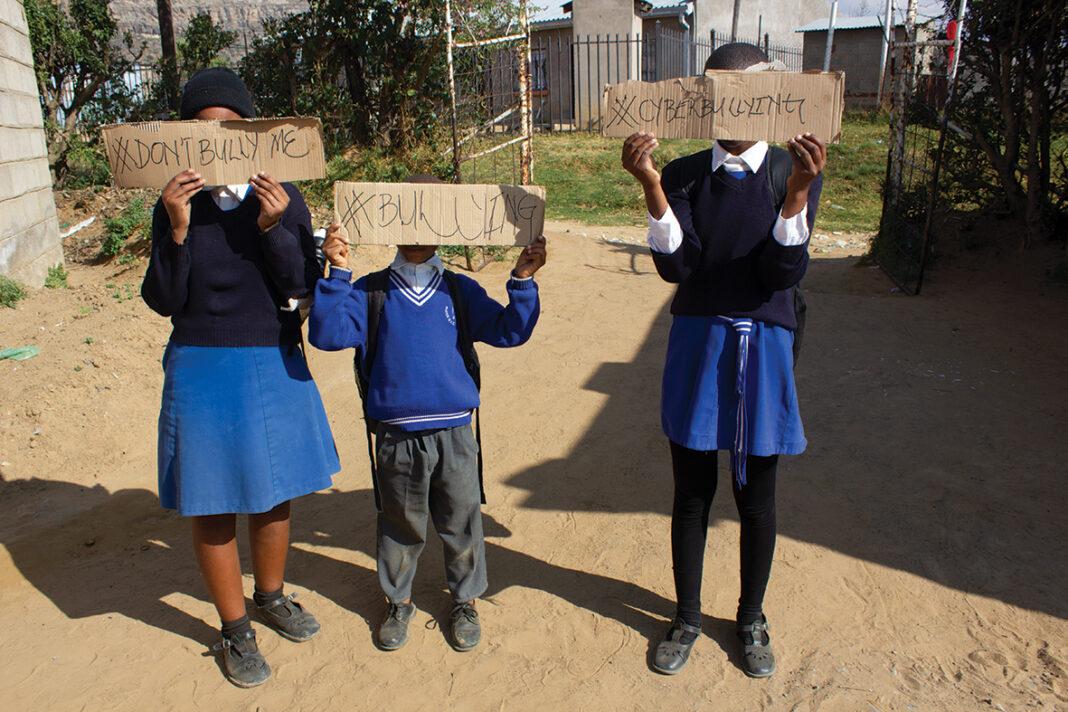Motsamai Mokotjo
In today’s digital age, where the world is at our fingertips with just a click, it is crucial to recognise the profound impact that technology has on our lives, particularly on the younger generation.
Recent years have witnessed a distressing surge in cyberbullying incidents within Lesotho’s school systems, shaking the very foundations of our society.
This issue not only threatens the well-being of our youth but also casts a long, dark shadow over the mental health of those who bring these stories to light.
As we grapple with the repercussions of cyberbullying in our classrooms and communities, it is high time we acknowledge the hidden toll it takes on both our children and the journalists who shed light on this pressing issue.
The journey into this disturbing realm of cyberbullying began with an investigative story by Thabelo Ramajake Monamane and me, courtesy of Media Monitoring Africa (MMA).
In the course of our research, we encountered horrifying stories from children, one of which recounted a chilling threat received on Facebook which noted: “I wanna f**k you till you dieâ€.
Cyberbullying, this sinister form of abuse that leverages technology to harm, harass, or intimidate individuals, primarily targets the vulnerable, such as school-going children.
Sadly, our children are not immune to the far-reaching consequences of this digital menace.
What is particularly disturbing is the frequency with which these incidents are occurring and the blatant audacity with which some perpetrators operate.
The heart-wrenching reality is that children are facing relentless cyberbullying, often within the confines of their educational institutions.
The very places that should nurture their growth and development have become breeding grounds for cruel and heartless attacks. It is a grievous betrayal of trust when children have no safe refuge, neither within their schools nor in their virtual spaces.
The impact of cyberbullying on children is multifaceted and deeply disturbing. The victims of these relentless attacks often experience severe emotional distress, anxiety, depression, and a profound sense of isolation.
Such emotional turmoil can have long-lasting effects on their mental health, potentially leading to self-esteem issues and, in extreme cases, even suicidal thoughts. Cyberbullying doesn’t just hurt; it leaves scars that may take a lifetime to heal.
Besides, the stress of dealing with cyberbullying can negatively affect a child’s academic performance, disrupting their ability to learn and grow.
What should be a time of exploration, growth, and academic achievement becomes a traumatic experience, leaving many children struggling to cope.
In the midst of this crisis, journalists play a pivotal role in raising awareness and advocating for change.
They are the watchdogs of society, tasked with shining a light on issues that might otherwise remain hidden.
However, covering the distressing stories of cyberbullying among children in Lesotho comes with its own set of challenges, including the heavy emotional burden it places on journalists.
As reporters delve into the harrowing stories of young victims and their tormentors, we often bear witness to the depths of human cruelty.
We navigate a minefield of emotions, from empathy for the victims to anger and frustration towards the perpetrators. This emotional rollercoaster takes a toll on our mental well-being, often leading to compassion fatigue, burnout, and secondary trauma.
While we are trained to remain objective and detached, we are not immune to the emotional impact of the stories we cover.
The relentless exposure to heartbreaking accounts of cyberbullying, coupled with the frustration of seeing the issue persist, can erode our mental health over time.
As journalists often find ourselves haunted by the stories we cover, struggling to compartmentalize emotions and maintain well-being.
In our country, as in many other places around the world, reporters covering cyberbullying face a unique challenge – the pain of knowing that the stories they write have real-life consequences for the children involved.
This awareness can create a sense of helplessness, as we grapple with the fact that we cannot directly intervene to protect these vulnerable young individuals.
It is imperative that we acknowledge the hidden toll that covering cyberbullying takes on journalists.
Our commitment to uncovering the truth should not come at the expense of their mental health.
Media organizations should prioritize our well-being, offering support, counselling, and resources to help us cope with the emotional toll of our work.
Raising awareness about cyberbullying and its impact on both children and journalists is crucial.
Schools, parents, and the broader community must come together to address this issue head-on. Creating a safe and nurturing environment for children, both online and offline, should be a collective effort.
Cyberbullying in schools is a grave issue that demands immediate attention. The emotional scars it inflicts on our children are deep and lasting. Moreover, we must not overlook the hidden toll it takes on the mental health of journalists who courageously bring these stories to the forefront.
As a society, we must stand up against cyberbullying, and as we do so, we must also extend a helping hand to those who uncover its ugly face.
Let us work together to protect our children and support the journalists who tirelessly work to expose the truth, so that they may continue their vital work with empathy, compassion, and resilience.
Only through collective effort and awareness can we hope to eliminate the scourge of cyberbullying from our schools and communities, ensuring a brighter and safer future for our children.
PS: Thabelo Ramajake Monamane and I are discussing our experiences during the investigation, aiming to shed light on what we went through. Fuck!!!!!!!!!!!!!!!!!!!




